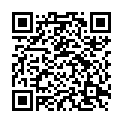|
|
|
| Module code: E2412 |
|
|
1V+1U (2 hours per week) |
|
3 |
| Semester: 4 |
| Mandatory course: yes |
Language of instruction:
German |
Assessment:
Written exam
[updated 08.01.2020]
|
E2412 (P211-0048) Electrical Engineering and Information Technology, Bachelor, ASPO 01.10.2018
, semester 4, mandatory course, technical
|
30 class hours (= 22.5 clock hours) over a 15-week period.
The total student study time is 90 hours (equivalent to 3 ECTS credits).
There are therefore 67.5 hours available for class preparation and follow-up work and exam preparation.
|
Recommended prerequisites (modules):
None.
|
Recommended as prerequisite for:
|
Module coordinator:
Prof. Dr. Benedikt Faupel |
Lecturer:
Dipl.-Ing. (FH) Andreas Ehlen
[updated 15.04.2020]
|
Learning outcomes:
After successfully completing this course, students will be able to model and simulate the behavior and influencing variables in control loop structures and simple differential equations. Students will examine the time behavior of system arrangements and determine optimized controller parameters for classical control processes. They will be able to analyze the stability behavior of control loops and describe system properties of standard transmission systems via identification procedures.
[updated 08.01.2020]
|
Module content:
1. Introduction and the basics of Matlab/Simulink 2. Mathematical applications Structure of differential equations, modeling differential equations Output and processing of vectors and matrices Representing curves and simulation results 3. Simulation with Matlab/Simulink Designing controllers and analyzing control loops with MATLAB/SIMULINK Examining the influence and variation of control parameters (PID control, non-continuous controllers) Examining and modeling discrete control loops Controller design and layout for unstable and non-minimum phase systems
4. Process identification methods Analysis methods for determining a model for analog LTI systems Least-Square - Method for determining a model for discrete LTI systems
[updated 08.01.2020]
|
Teaching methods/Media:
Presentation, board, lecture notes
[updated 08.01.2020]
|
Recommended or required reading:
Dorf, Richard C.; Bishop, Robert H.: Moderne Regelungssysteme, Pearson, 2006, 10. Aufl. Föllinger, Otto: Laplace- Fourier- und z-Transformation, VDE, (latest edition) Föllinger, Otto: Regelungstechnik, VDE, (latest edition) Grupp Frieder; Grupp Florian: MATLAB für Ingenieure, Oldenbourg, München, (latest edition) Lutz, Holder; Wendt, Wolfgang: Taschenbuch der Regelungstechnik, Harri Deutsch, (latest edition) Schulz, Gerd: Regelungstechnik, Oldenbourg, (latest edition) Unbehauen, Heinz: Regelungstechnik, Vieweg + Teubner, (latest edition)
[updated 08.01.2020]
|


